What foods are called refined and why are they harmful to health?
Content:
The diet of the average Russian resident is dominated by refined foods. This means that every day a huge amount of “empty” calories, sugar, and unhealthy fats enters the body. At the same time, the body begins to lack vitamins, minerals, and fiber. Eating processed food contributes to metabolic disorders, weight gain, and increases the risk of chronic diseases. We will tell you which foods should be limited in your diet and why.

What does refined food mean?
The French term raffiner translates to “to cleanse.” Refined foods are foods whose chemical composition has changed significantly as a result of factory processing.
Refiners typically have three goals in mind:
- Improve the appearance and taste of products.
- Extend shelf life.
- Destroy pathogenic bacteria, viruses, parasites.
Essentially, refined foods are a smart move from a business perspective.People are willing to buy food that has a rich taste and can be stored for a long time. The abundance of salt, sugar and aromatic additives causes addiction among buyers, which has a positive effect on sales.
The main health hazard of purified products is their unbalanced composition. During processing, food is deprived of a significant portion of vitamins, macro- and microelements, and dietary fiber. The ratio of omega-3 to omega-6 fatty acids shifts toward the latter, leading to an increased risk of cardiovascular disease. Due to the abundance of “simple” carbohydrates, refined foods are digested too quickly: sugars are transformed into fat deposits, and a person feels hungry, irritated and tired.
List of refined foods and their harm to health
Some refined foods simply load the body with extra calories, while others lead to malfunctions of internal organs. Please review and consider the list below to help you stay healthy.
Sugar and any industrial sweets
Refined white sugar is completely devoid of nutrients. When consumed in excess quantities, it causes serious harm to the body:
- increases the risk of metabolic disorders: metabolic syndrome, type 2 diabetes, obesity;
- impairs thinking abilities;
- promotes the development of caries.
Sugar is present in hidden form in many products. But most of all it is found in sweets, baked goods, industrial sauces, sweet carbonated drinks and packaged juices.
WHO considers a safe sugar intake to be up to 50 g per day. But most people do not follow this recommendation.
Salt
The human body needs sodium to maintain water-salt balance and normal functioning of the cardiovascular system. However, another element predominates in the composition of fine table salt - chlorine (60%).
To obtain a crumbly structure and snow-white color, manufacturers add potassium ferrocyanide (E536) to the product. This substance has a toxic effect - it provokes inflammatory processes in the gastrointestinal tract and on the skin.
White rice
Unpolished rice contains a large amount of dietary fiber, B vitamins, PP, potassium, selenium and zinc. However, after removing the bran shell, essentially only starch remains in the cereal. This product is not beneficial to the body and causes the following problems:
- constipation;
- weight gain due to the high content of simple carbohydrates;
- metabolic disorders up to type 2 diabetes.
White rice became the basis for fashionable diets practiced by Russian stars. However, weight loss when consumed occurs due to the removal of fluid from the body, and not the actual burning of fat.
Products made from premium flour
Premium white flour makes baked goods beautiful, fluffy and tender. However, there is zero benefit in such a product. When consuming products made from premium flour, the body receives a huge amount of calories, sticky starch, and often sugar. The consequences are the same as when eating white rice: weight gain, constipation, metabolic disorders.
The following products cause the greatest harm to the body:
- pastries and cream pies;
- shortbread;
- fried pies;
- pasties;
- buns with fruit filling.
In addition to starch, such products contain a lot of sugar and trans fats.As a result, the risk of cardiovascular disease increases.
Refined sunflower oil
When producing refined oil, sunflower seeds are filled with a solvent - hexane (an oil refining product), and then purified with alkali. The resulting fat is bleached and deodorized with water vapor.
How does refined oil differ from unrefined oil?
- Contains virtually no vitamins A, E, H, or beneficial microelements.
- It has a faint odor and pale color.
- Has a trans fat concentration of up to 25%.
Regular consumption of such a product leads to the development of obesity, cardiovascular diseases, inflammatory processes, and endocrine disorders. It is better to keep fried foods to a minimum in your diet, and season salads with unrefined oil.
Low-fat dairy products
Low-fat foods, especially cottage cheese, yogurt and kefir, are popular among those who are always on a diet. However, their production is nothing more than a clever marketing ploy. To improve the taste, starch, sugar, and aromatic additives are often added to low-fat milk. With the help of artificial stabilizers, manufacturers try to give products uniform density.
But the main harm of low-fat dairy products is that calcium from it is not absorbed correctly. The macroelement does not go into building bones and teeth, but “clogs” the kidneys, gall bladder, and blood vessels.
Other refined products
Refined foods can also include food that is made primarily from processed ingredients. The list includes the following foods:
- industrial semi-finished products: dumplings, dumplings, dumplings;
- fast food;
- chips, crackers;
- imitation fish, meat (in particular crab sticks);
- margarine;
- instant soups, noodles and purees.
It is better to exclude the listed products from the diet completely. They are not only poor in nutrients, but also crammed with chemicals. Corn (fructose) syrup is also harmful to the body, as it causes sudden spikes in blood sugar and a feeling of hunger.
How to replace refined products?
If you immediately eliminate all refined foods from your diet, your body will be in a state of stress. This tactic will lead to failure. It is better to gradually replace unhealthy foods with healthier alternatives.
Table 1. Alternative to refined foods
| Refined product | Useful analogue |
|---|---|
| White sugar | Brown sugar, sorbitol, erythritol, stevia |
| Fine table salt | Coarse grayish rock salt, sea salt (including pink Himalayan salt) |
| White rice | Brown/brown/unpolished rice |
| Semolina, couscous, bulgur | Wheat groats, barley groats, pearl barley |
| Products made from premium flour | Products made from whole grain flour |
| Refined oils | Unrefined cold pressed oils |
| Margarine | Butter |
| Low-fat milk | Kefir and yogurt with a fat content of at least 3%, cottage cheese - at least 5% |
| Sweets | Nuts, dried fruits, raw seeds, fresh fruits |
| Fast food | Sandwiches made from whole grain bread, cheese, natural meat and fish, vegetable salads |
Refined foods are an exchange of health for immediate food pleasure. A diet consisting of such food is unbalanced and leads to deterioration of well-being, mental abilities, and excess weight. If you want to prevent such problems from occurring, start replacing refined foods with healthy foods.Over time, you will realize that it is not only healthier, but also tastier.
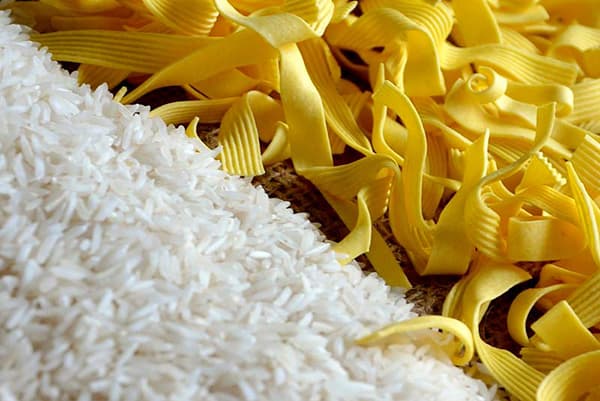
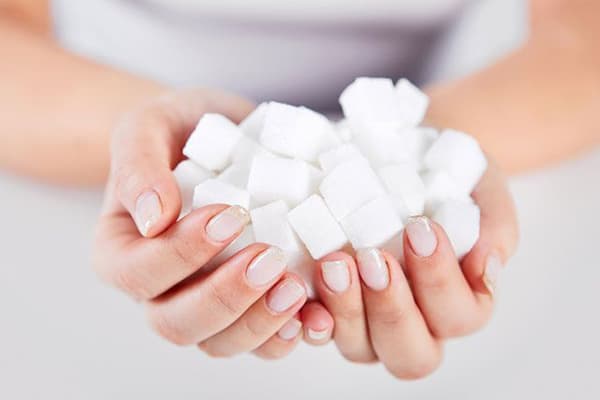
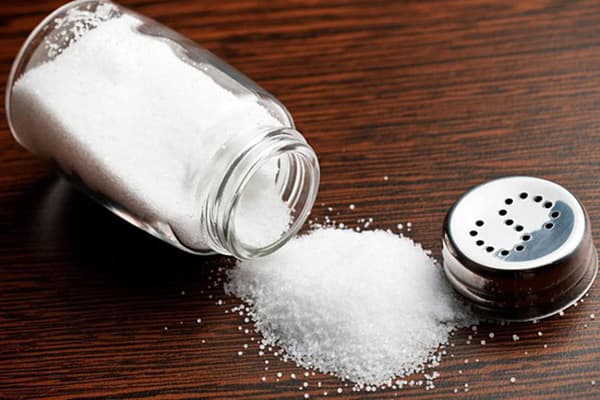
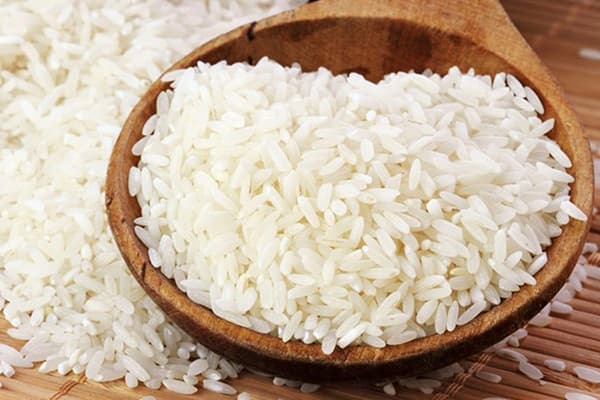


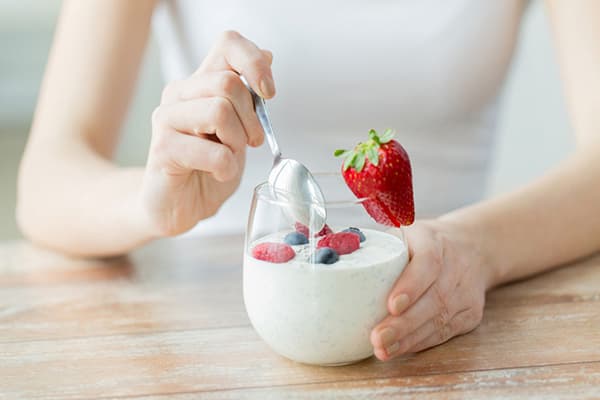
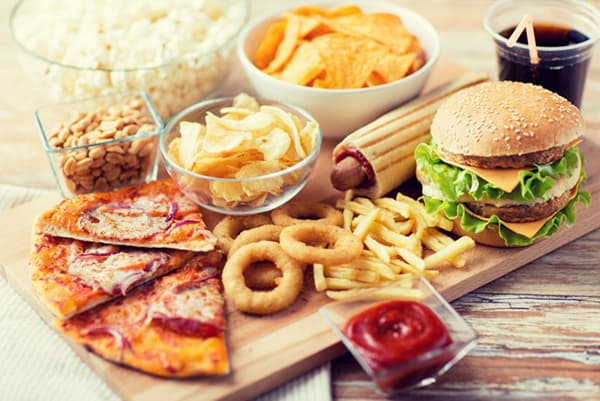

It turns out very interesting. When preparing for a colonoscopy, it is recommended to consume refined foods three days in advance. But are they so harmful?
It’s good that it’s not just written which products are harmful, but also indicated what can be replaced.